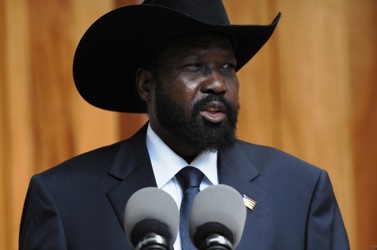News
South Sudan to seek international arbitration over disputed borders – Salva Kiir
June 11, 2012 (JUBA) — South Sudan’s President, Salva Kiir informed the African Union Peace and Security Council (AUPSC) that South Sudan will seek international arbitration over the disputed border area if the ongoing talks fail.

President Salva Kiir (©Paul Banks – UNMIS)

